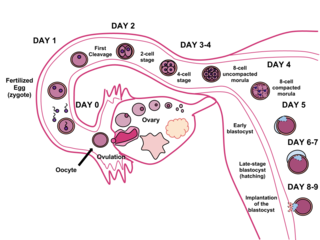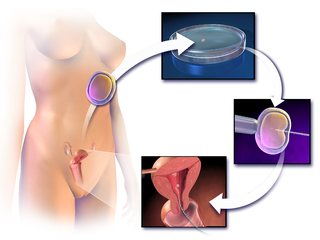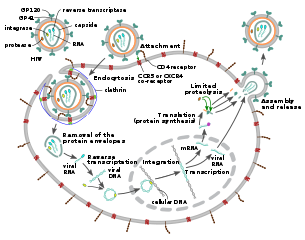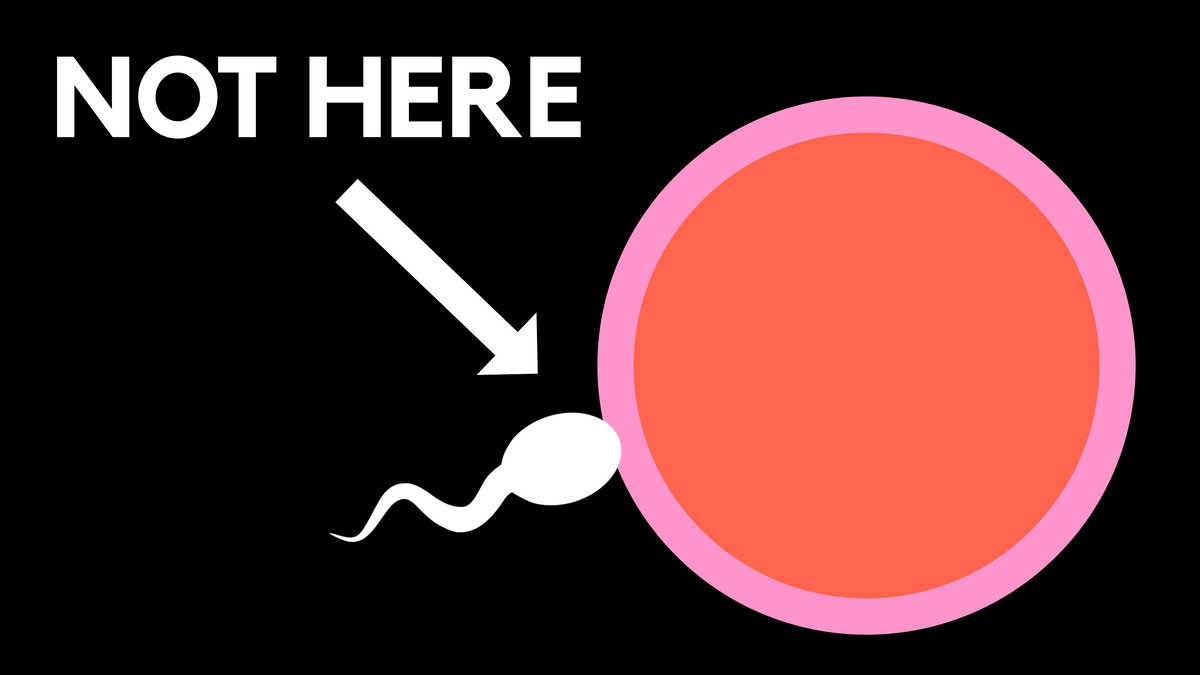I had been thinking about making this video for a while, but once Roe v. Wade was overturned in the US, I thought it would be good timing to prioritise it sooner rather than later. The main contention of the video is to refute the argument "science proves that life begins at conception" in three ways.
1. From a biological perspective, the reasons often invoked to justify why the moment of conception is special are not that robust. It is not the moment at which the genomes of the two parents fuse and the formation of the boundary that occurs at conception isn't that much of a good delineator between humans; for instance, consider the tricky case of congenital twins.
Sources:
Gilbert, Scott F. & Baressi, Michael J. F. (2016). Developmental Biology (11th ed., pp. 246-247). Sinauer Associates.
McMahan, Jeff. The Ethics Of Killing: Problems At The Margins Of Life. Oxford University Press, USA, pp. 31-39. https://doi.org/10.1093/0195079981.001.0001
And the genetic uniqueness of the embryo is not that significant, because identical twins exist, and the sperm and egg were already genetically unique beforehand and just happened to combine into a single cell. On top of that, making an argument from genetic uniqueness is way too reductionist. The idea that "organism = genes" is common amongst the public but is wrong, because well, genetics is far from the only factor needed to create an organism.
Source:
Jamieson, A. & Radick, G. (2017). Genetic Determinism in the Genetics Curriculum. Sci & Educ 26, 1261–1290.

2. From a philosophical perspective, there are two common arguments given to justify life beginning at conception. First, that the zygote is guaranteed to become a human adult, as long as it is not killed. Some even go as far to say that development is like a polaroid.
Sources:
But this is not a good argument for the simple reason that development simply does not result in an adult organism by default. There are many things that can go wrong during pregnancy which results in the zygote not developing into an adult. So to think that conception is the same as the snap of a polaroid, at which point a human individual is just a quick shake of the photo away is deeply flawed.
Sources:
Jarvis, G. E. (2016). Early embryo mortality in natural human reproduction: What the data say. F1000Research, 5.

Andersen, A. M. N., Wohlfahrt, J., Christens, P., Olsen, J., & Melbye, M. (2000). Maternal age and fetal loss: population based register linkage study. Bmj, 320(7251), 1708-1712.

The pro-life response, at this point, is often to pivot and say that "oh but an embryo dying by itself is not the same as us intervening to abort it." I think for the ethical side of the debate this is a reasonable argument to pursue but it completely skips over the fact that now the polaroid metaphor simply does not work, since they have just admitted that 'the photo is not going to develop' much of the time. In fact, I find the metaphor pretty offensive to anyone who has had a miscarriage or anyone who has seriously struggled to raise a child for whatever reason. What, you think the zygote just magically raises itself to become an adult? Just as easy as shaking a polaroid?
There is also a weaker form of the argument that seems more palatable. That ok, the zygote does not magically polaroid itself into a full adult, but given: (a) nutrition, (b) the right environment and, (c) enough time, it will certainly become an adult. Hence, we can consider the embryo a whole organism right from the moment of conception.
Sources:
(jump to 1:30 of the video below)
The key problem with this is the definition of "environment." Clearly, the environment in mind for this argument is the womb/uterus of the mother plus the conditions required to raise the child from baby to adult (i.e. a home, parents to take care of the young, presumably an education etc.) But really, the universe places no special condition on the uniqueness of this environment.
By all means, I could take the egg as the central organism and the environment as the fallopian tubes containing sperm and then a suitable environment for the zygote to develop as assumed before.
The truth is that "the environment" does not exist. Every organism creates its own environment and as Lewontin put it:
There is no organism without an environment, but there is no environment without an organism.
So our definition of "environment" is only as good as our definition of "the organism." But since the latter is exactly what we are trying to define, this approach is circular. Pragmatically, the concept of the "environment" is used as an abstraction. Hard to pin down ontologically speaking, but undeniably an incredibly useful epistemic tool.
Unfortunately, the "life beginning at conception" argument is at its heart a metaphysical one. Proponents claim that science has proven at which point an organism begins to exist. Biological metaphysics is simply not that clear. I understand that this is not a satisfying answer for many people who seek to draw the line somewhere (see 11:50 of the Jubilee video below). But unfortunately true biology is just messier than the boxes we have tried to put it into.
Sources:
Lewontin, R. C., & Levins, R. (2007). Biology Under The Influence. Monthly Review Press, pp. 31-34.
Lewontin, R. C. (1983). The organism as the subject and object of evolution. Scientia, 77(18). http://sesultan.web.wesleyan.edu/pdfs/lewontin_organism_as_subject.pdf
Walsh, D. (2022). Environment as abstraction. Biological Theory, 17(1), 68-79.

Ultimately, all of these kinds of arguments rely on what is known as the Cartesian machine metaphor. During the 17th century, Descartes developed his philosophy which viewed the world as a machine. Everything proceeded like clockwork. This was great for classical mechanics, because Newton's laws were formed on the back of Cartesian philosophy with everything determinable if we knew the initial conditions.
The problem is that the world, and in particular organisms, are simply not machines. Things go wrong. The world is not determined. We are not machines, or computers, or polaroids. It is for this reason that Ben Shapiro's view of development is so flawed (skip to 9:44 of the video):
Sources:
Nicholson, D. J. (2019). Is the cell really a machine?. Journal of Theoretical Biology, 477, 108-126. https://doi.org/10.1016/j.jtbi.2019.06.002
Finally, science hasn't 'proven' anything about when organisms begin. The concept of an organism is one that we have constructed over time. Empirical results have little, if anything, to do with when/where an organism is. We instead rely on philosophical justifications to explain why we think genome fusion or boundary formation are important for organism-ness. You can argue that these are important and central but: (1) from the section above I don't think the argument is that good and (2) making an argument is not empirical/experimental science anymore, it's philosophy of science. Science alone has not proven when a new organism begins.
Sources:
3. From a technical/pedantic perspective, "life" does not begin at conception because both the egg and the sperm are also alive. Life has existed on earth for a good few billion years. Of course, the real slogan should be something like "a human life begins at conception." But that's not as catchy.
My personal view is that even with this caveat, organisms are processes and since processes are so nebulous there is no clear beginning or end to any organism in space or time. Every organism necessarily exists in symbiosis with another. That said, the concept of 'biological individuals' is central to much of current biological, and in particular, evolutionary theory. So as a means for us humans to better understand the complexity of the biological world, speaking of individuals may still be useful, even as we begin to move towards a more processual framework.
Sources:
Meincke, A. S. (2021). One or two? A Process View of pregnancy. Philosophical Studies, 1-27.

Bouchard, F. (2018). Symbiosis, Transient Biological Individuality, and Evolutionary Processes. In Nicholson, D. J., & Dupré, J. (Eds.), Everything flows: towards a processual philosophy of biology (pp. 186-198). Oxford University Press. https://doi.org/10.1093/oso/9780198779636.003.0009
Arnellos, A. (2018). From Organizations of Processes to Organisms and Other Biological Individuals. In Nicholson, D. J., & Dupré, J. (Eds.), Everything flows: towards a processual philosophy of biology (pp. 199-222). Oxford University Press. https://doi.org/10.1093/oso/9780198779636.003.0010
Falandays, J. B. (2021). Shedding Our Substantial Baggage: Towards a Process-Ontological Turn in Cognitive Science. https://doi.org/10.31234/osf.io/zyq9f
But then why do so many believe that life begins at conception? Well it is actually a very recent development in the history of science, rising to prominence during the middle of the 20th century. For a more in depth history, have a look at this Wikipedia page and the first chapter of Carl Zimmer's Life's Edge titled "The Way The Spirit Comes From The Bones."
Needless to say, pro-life advocates are the main ones pushing this claim since it (allegedly) allows them to continue the argument that since embryos are "alive, human and whole organisms," and all human lives have value, it then (allegedly) follows that abortion is immoral. There are scare quotes and scare brackets all through that sentence, because it is not actually conclusion as beautifully highlighted by Abigail on PhilosophyTube:
I didn't want to go too far into the ethical side of the debate in the video because Abigail said most of what I would have said. Anyway, go watch that video if you're more into moral philosophy and less keen on metaphysics/philosophy of biology.
One final point. I think despite all of the philosophy/biology we've just gone through, there is one main underlying argument that pro-life advocates use to push the claim "(science proves that) life begins at conception." In maths, we call it proof by intimidation. It basically means that if these people just shout "SCIENCE PROVES THAT LIFE BEGINS AT CONCEPTION" enough then we will be so intimidated by the shouting that we just accept it as true.
This is why it is important to critically think about any claim we see in popular media. And also why I think appeals to 'scientific consensus' are never that strong, let alone appeals to 'philosophical consensus' (if that even exists).
Credits








Member discussion: